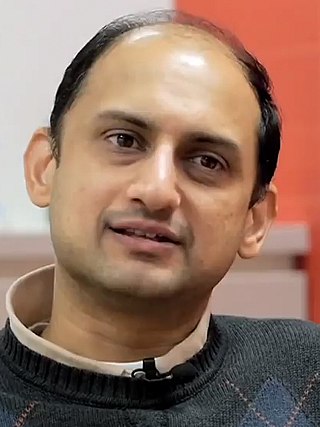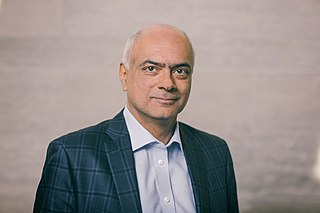
The Reserve Bank of India, abbreviated as RBI, is India's central bank and regulatory body responsible for regulation of the Indian banking system. It is under the ownership of Ministry of Finance, Government of India. It is responsible for the control, issue and maintaining supply of the Indian rupee. It also manages the country's main payment systems and works to promote its economic development. Bharatiya Reserve Bank Note Mudran (BRBNM) is a specialised division of RBI through which it prints and mints Indian currency notes (INR) in two of its currency printing presses located in Mysore and Salboni. The RBI, along with the Indian Banks' Association, established the National Payments Corporation of India to promote and regulate the payment and settlement systems in India. Deposit Insurance and Credit Guarantee Corporation was established by RBI as one of its specialized division for the purpose of providing insurance of deposits and guaranteeing of credit facilities to all Indian banks.

Bimal Jalan is a former Governor of Reserve Bank of India and was a nominated member of the Upper House of India's Parliament, the Rajya Sabha during 2003–2009.

Raghuram Govind Rajan is an Indian economist and the Katherine Dusak Miller Distinguished Service Professor of Finance at the University of Chicago's Booth School of Business. Between 2003 and 2006 he was Chief Economist and director of research at the International Monetary Fund. From September 2013 through September 2016 he was the 23rd Governor of the Reserve Bank of India. In 2015, during his tenure at the RBI, he became the Vice-Chairman of the Bank for International Settlements.
Sri Venkitaramanan was an Indian civil servant and economist who served as the 18th governor of the Reserve Bank of India between 1990 and 1992, where he oversaw India's actions to tide over the balance of payments crisis. His actions were noted to have helped the country out of the crisis when its foreign-exchange reserves had almost depleted and helped usher in the country's economic liberalisation programme in the early 1990s.

Sir Chintaman Dwarakanath DeshmukhICS was an Indian civil servant and the first Indian to be appointed the Governor of the Reserve Bank of India in 1943 by the British Raj authorities. He subsequently served as the Finance Minister in the Union Cabinet (1950–1956). It was during this time that he also became a founding member of the Governing Body of NCAER, the National Council of Applied Economic Research in New Delhi, India's first independent economic policy institute established in 1956 at the behest of Prime Minister Jawaharlal Nehru. After resignation from Union Cabinet he worked as Chairman of UGC (1956–1961). He served as Vice-Chancellor of University of Delhi (1962–67). He was also President of Indian Statistical Institute from 1945 to 1964, Honorary Chairman of National Book Trust (1957–60).
Shyamala Gopinath is Chairperson of HDFC Bank, India's largest lender by market capitalization. Ms. Gopinath is a former deputy governor of the Reserve Bank of India (RBI), a position she served for seven years.
Financial inclusion is the availability and equality of opportunities to access financial services. It refers to a process by which individuals and businesses can access appropriate, affordable, and timely financial products and services which include banking, loan, equity, and insurance products. It is a path to enhance inclusiveness in economic growth by enabling the unbanked population to access the means for savings, investment, and insurance towards improving household income and reducing income inequality

Duvvuri Subbarao is an Indian economist, Central Banker, and retired IAS officer. He was the 22nd Governor of Reserve Bank of India, served under Prime Minister Dr. Manmohan Singh. After stepping down from RBI, he was a Distinguished Visiting Fellow first at the National University of Singapore and later at the University of Pennsylvania.
The Financial Stability Board (FSB) is an international body that monitors and makes recommendations about the global financial system. It was established in the 2009 G20 Pittsburgh Summit as a successor to the Financial Stability Forum (FSF). The Board includes all G20 major economies, FSF members, and the European Commission. Hosted and funded by the Bank for International Settlements, the board is based in Basel, Switzerland, and is established as a not-for-profit association under Swiss law.
The Economic Times Awards for Corporate Excellence are the awards conferred by The Economic Times in the field of business, corporate and government policies, economies in India. It is an annual awards, conferred in various categories. Since 2017, Deloitte Touche Tohmatsu India LLP (Deloitte) has been the title sponsor of the awards. The 2018 leg of the awards will be held on 22 November in Mumbai.
Rakesh Mohan is an Indian economist and former Deputy Governor of Reserve Bank of India. He is the Vice Chairperson of Indian Institute for Human Settlements. He was appointed in November 2012 as an executive director of the IMF for a three-year term, and in April 2010, he joined Nestlé India, as a non-executive director.
From the 1991 India economic crisis to its status of third largest economy in the world by 2011, India has grown significantly in terms of economic development, so has its banking sector. During this period, recognizing the evolving needs of the sector, the Finance Ministry of the Government of India set up various committees with the task of analyzing India's banking sector and recommending legislation and regulations to make it more effective, competitive and efficient.
The Stiglitz Report: Reforming the International Monetary and Financial Systems in the Wake of the Global Crisis is a book on economics written by Nobel Laureate economist Joseph Stiglitz, documenting the necessary changes and reforms of the international financial institutions in the wake of the financial crisis of 2007–2008, and the subsequent Great Recession arisen from it.

Deepak Mohanty is an economist. He holds the post of Chairperson of India’s pension regulator, Pension Fund Regulatory and Development Authority(PFRDA). He was Chief Economic Advisor, Federation of Indian Chambers of Commerce and Industry (FICCI) and was an independent Director on a few companies’ Boards. Prior to that, Dr. Mohanty was Whole Time Member, PFRDA.

Urjit Patel is an Indian economist, who formerly served as the 24th Governor of the Reserve Bank of India and also Deputy Governor of Reserve Bank of India, looking after monetary policy, economic research, financial markets, statistics and information management. He resigned from his post on 10 December 2018, being the first RBI governor to state personal reasons as a driving factor for resigning.
India has large foreign-exchange reserves; holdings of cash, bank deposits, bonds, and other financial assets denominated in currencies other than India's national currency, the Indian rupee. The reserves are managed by the Reserve Bank of India for the Indian government and the main component is foreign currency assets.

Viral V. Acharya is an Indian economist who was appointed as Deputy Governor of Reserve Bank of India (RBI). He also served as a member of the advisory council of the RBI Academy and was a member of the Academic Council of the National Institute of Securities Markets (NISM), Securities and Exchange Board of India (SEBI) since 2014. As of 23 January 2017, he was appointed to serve a three-year term as a Deputy Governor of the Reserve Bank of India. He resigned from the post in July 2019 with 6 months left for his completion of term.
The Monetary Policy Committee is responsible for fixing the benchmark interest rate in India. The meetings of the Monetary Policy Committee are held at least four times a year and it publishes its decisions after each such meeting.

Shaktikanta Das is serving as the current & 25th governor of the Reserve Bank of India (RBI). He was earlier a member of the Fifteenth Finance Commission and India's Sherpa to the G20. Das is a retired 1980 batch Indian Administrative Service (IAS) officer of Tamil Nadu cadre.

Rohinton P. Medhora is a Canadian economist. His fields of expertise are monetary and trade policy, international economic relations, and development economics. He is a Centre for International Governance Innovation (CIGI) distinguished fellow, former president of CIGI and professor of practice at McGill University's Institute for the Study of International Development.














